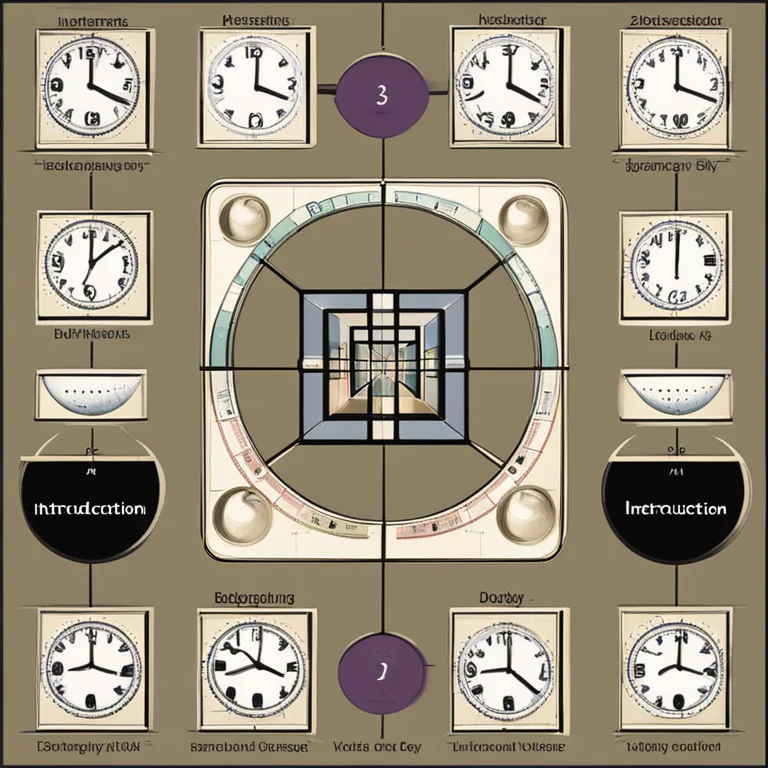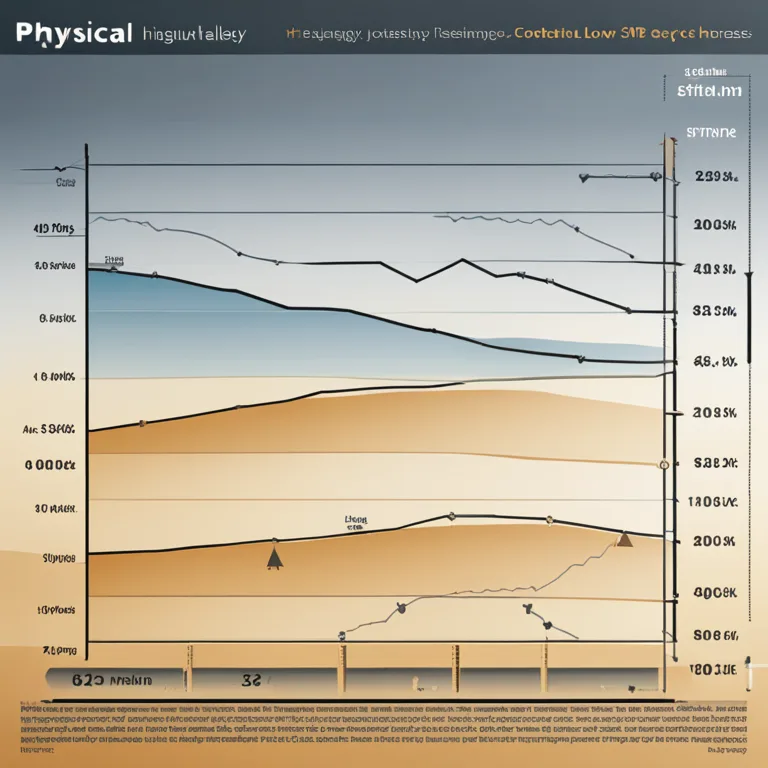
The Rhythms of Life: Your Biorhythms and Behavior
Delve into the world of biorhythms and discover how these innate cycles influence our daily behavior, emotions, and physical states.
article by Adrian Wallace
Introduction to Biorhythms
In the intricate dance of life, each organism moves to a unique tempo. These tempos, known as biorhythms, are the internal clocks that regulate various biological processes. The concept of biorhythms suggests that our physical, emotional, and intellectual capacities are influenced by natural cycles. These cycles include the 23-day physical, 28-day emotional, and 33-day intellectual, which ebb and flow throughout our lives. Understanding our biorhythms can offer insight into the best times for productivity, social interactions, and rest. As we stand on the edge of 2024, the study of biological rhythms becomes more pertinent with advances in technology allowing for greater precision in tracking and analysis.

Physical Cycle Insights
The physical cycle, with its 23-day period, governs aspects like stamina, coordination, and strength. As the wave peaks, we may feel at our physical prime—energetic and active. However, once it crosses the axis heading towards a low phase, our physical capabilities might seem to wane, leading to a sense of tiredness or lethargy. This rhythm can be crucial for athletes who rely on their physical peaks for performance, or for anyone aiming to optimize their physical well-being. With wearable technology, individuals can now monitor this cycle more closely and align their activities accordingly.

Emotional Ebb and Flow
The 28-day emotional cycle sways our moods and feelings. When the wave is on the ascent, optimism and positivity often prevail, enhancing social interactions and personal relationships. Conversely, when the wave descends, a person might experience a period of emotional vulnerability or sadness. Recognizing this pattern empowers individuals to anticipate and better manage these emotional shifts. In a world that's increasingly acknowledging mental health, understanding the emotional biorhythm carries significant value for maintaining emotional well-being.

Cerebral Cycles and Intellectual Highs
Intellectual prowess is subject to a 33-day biorhythm cycle that affects cognitive functions such as analysis, logical thinking, and memory. When we ride the high of this cycle, mental tasks and problem-solving may come more easily. During the lows, it could be beneficial to engage in activities that require less cognitive load. In the information age, with its relentless demand for cognitive engagement, the ability to gauge the intellectual biorhythm is a potent tool for students, professionals, and creatives alike.

Applications in Daily Life
The practical applications of biorhythms are numerous. By considering these cycles, one can schedule activities, from critical business meetings to surgery, aligning them with personal high tides. Companies look at biorhythms to optimize staff productivity and well-being, while healthcare professionals consider them when planning treatments and recovery programs. Even couples may turn to biorhythms to enhance relationship dynamics. With apps and digital platforms providing personalized biorhythmic charts, it's easier than ever to integrate this knowledge into everyday life.
Biorhythms and Modern Science
Modern scientific interest in biorhythms has continued to flourish. Research delves into genetic chronobiology, seeking to unpack the relationship between our DNA and our internal clocks. As we advance, the potential to personalize medicine, fitness, and mental health strategies based on our rhythms grows. The exploration of biorhythms in 2024 and beyond stands poised to revolutionize how we approach health, productivity, and even interpersonal relationships at a fundamental level.
Published: 12/28/2023
Modified: 12/28/2023
More predictions
Come back here soon to learn more about yourself and your future


Unlocking Biorhythm Calculations
Learn the ins and outs of measuring your biorhythms to align with your natural energy cycles for enhanced well-being and decision-making.


The Core of Biorhythm Theory
Delve into the core of biorhythm theory, a concept that suggests our daily lives are influenced by natural physiological cycles.


The Origins of Biorhythm Theory Explored
Discover the historical and scientific roots of biorhythm theory, the concept that seeks to predict personal cycles of health, emotion, and intellect.